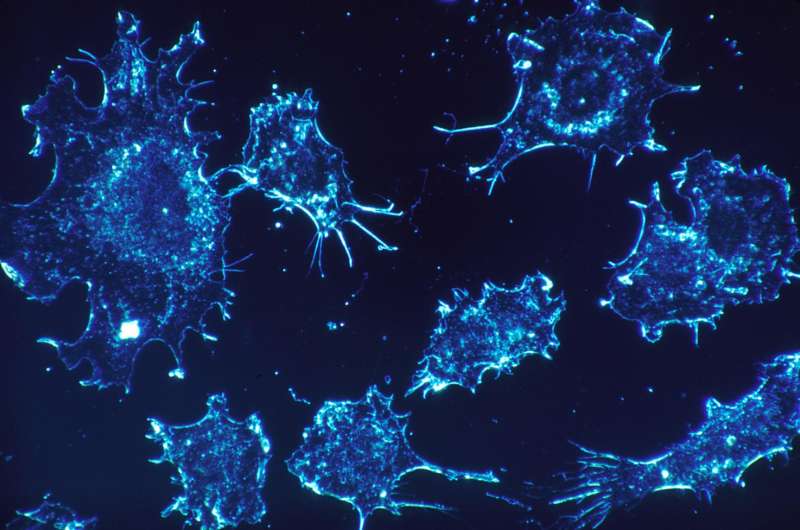Credit: CC0 Public Domain
Federally funded research contributed to the science underlying each of the 59 new cancer drugs approved by the FDA from 2010-2016 according to a study from Bentley University. The article, titled "NIH funding for research underlying new cancer therapies," suggests that the level of NIH funding for cancer research is substantially higher than previously estimated.
The new report from the Center for Integration of Science and Industry, published in The Lancet Oncology, shows that the United States government invested $64 billion in research related to these 59 drugs. This included $54 billion for basic research related to the biological targets for these drugs and $9.9 billion for applied research related to the drugs themselves. This total is greater than the annual budget allocations for the National Cancer Institute (NCI) over the last decade and previous estimates of total NIH spending on cancer by the NIH Research, Condition, Disease Categorization (RCDC) database.
Overall, the NCI contributed $20 billion to research on new cancer drugs, representing 31% of the total for basic research and 43% of the total for applied research. The majority of the funding for research leading to these drugs was funded by other institutes across the NIH, and represents the "spillover" of basic research in areas such as immunology and endocrinology, which proved to have practical applications in treating cancer.
"This study suggests that the scale of the public sector contribution to the basic and applied research that leads to new cancer therapies is substantially greater than previously estimated, and demonstrates the importance of funding a broad base of basic research that may have unexpected applications," said Dr. Fred Ledley, Director of the Center for Integration of Science and Industry, and the senior author on this study. "While much of the research we identified in this study was originally aimed at understanding the immune system and treating immunological disease, this research ultimately provided insights that led to the development of innovative immunotherapies for cancer."
The study involved the analysis of 712 thousand research publications that were directly related to the 59 new cancer therapies approved from 2010-2016 or their biological targets. Of these 37% were supported by the NIH. This support comprised 117 thousand fiscal years of funding totaling $63.9 billion. Of this total, 92% was for basic research on biological targets and systems, rather than the drugs themselves.
More information: The Lancet Oncology (2020). www.thelancet.com/journals/lan … (20)30235-7/fulltext
Journal information: Lancet Oncology
Provided by Bentley University






















